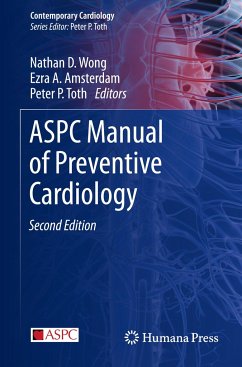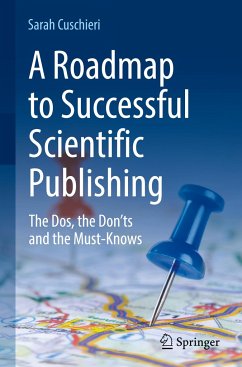
How to Write Better Medical Papers

PAYBACK Punkte
17 °P sammeln!
This book guides medical researchers through all stages of transforming their scientific data and ideas into a published paper. Many researchers in medicine, including the life sciences and health sciences, struggle to get their research written and published. Manuscripts are typically rejected and/or sent back for revisions several times before ever being published. One reason for this is that researchers have not received much instruction in the specific subjects and skills needed to write and publish scientific medical papers: research methodology, ethics, statistics, data visualization, wr...
This book guides medical researchers through all stages of transforming their scientific data and ideas into a published paper. Many researchers in medicine, including the life sciences and health sciences, struggle to get their research written and published. Manuscripts are typically rejected and/or sent back for revisions several times before ever being published. One reason for this is that researchers have not received much instruction in the specific subjects and skills needed to write and publish scientific medical papers: research methodology, ethics, statistics, data visualization, writing, revising, and the practicalities of publishing.
Instead of wasting the reader's time discussing trivialities of punctuation, spelling, etc., this book tackles all the major scientific issues that routinely lead to manuscripts getting rejected from the journals. The section "Preparing" covers the range of methodological, ethical, and practical aspects that researchers need to address before starting to write their paper. The section "Analyzing" reviews commonplace problems in the statistical analysis and presentation, and how to resolve those problems. The section "Drafting" describes what to write in all the various parts of a paper (the Introduction, Methods, Results, Discussion, Abstract, etc.) The section "Revising" explains and illustrates how to improve the writing style of any manuscript. The section "Publishing" discusses how to navigate the peer review process and all other practical aspects of the publishing phase.
This book draws on the author's decade of experience as an independent medical writer and research consultant, but it is not written merely as the personal opinion of yet another expert. The entire book is grounded in the existing scientific and scholarly literature, with extensive references and a lengthy annotated bibliography, so readerscan quickly obtain more information on any aspect they want. Thus this book provides a more evidence-based, scholarly account of how medical scientific papers should be written, in order to improve medical communication and accelerate scientific progress.
After reading this entire book cover to cover, medical researchers will know how to write better quality medical papers, and they will be able to publish their work in better journals with less time and struggle. This book is essential reading for anyone conducting research in clinical medicine, life sciences, or health sciences.
Instead of wasting the reader's time discussing trivialities of punctuation, spelling, etc., this book tackles all the major scientific issues that routinely lead to manuscripts getting rejected from the journals. The section "Preparing" covers the range of methodological, ethical, and practical aspects that researchers need to address before starting to write their paper. The section "Analyzing" reviews commonplace problems in the statistical analysis and presentation, and how to resolve those problems. The section "Drafting" describes what to write in all the various parts of a paper (the Introduction, Methods, Results, Discussion, Abstract, etc.) The section "Revising" explains and illustrates how to improve the writing style of any manuscript. The section "Publishing" discusses how to navigate the peer review process and all other practical aspects of the publishing phase.
This book draws on the author's decade of experience as an independent medical writer and research consultant, but it is not written merely as the personal opinion of yet another expert. The entire book is grounded in the existing scientific and scholarly literature, with extensive references and a lengthy annotated bibliography, so readerscan quickly obtain more information on any aspect they want. Thus this book provides a more evidence-based, scholarly account of how medical scientific papers should be written, in order to improve medical communication and accelerate scientific progress.
After reading this entire book cover to cover, medical researchers will know how to write better quality medical papers, and they will be able to publish their work in better journals with less time and struggle. This book is essential reading for anyone conducting research in clinical medicine, life sciences, or health sciences.












